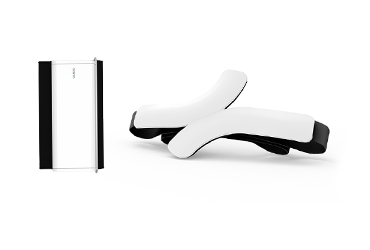Heart problems are far more prevalent than you think, so understanding the most common ones, recognizing the symptoms and knowing how to manage them can be a life-saving exercise. Atrial fibrillation is certainly one of them. Read about it here.
What is atrial fibrillation?
Atrial fibrillation, also known as AF or AFib, is one of the most common types of heart arrhythmia. An arrhythmia is an abnormality in the rate or rhythm of the heartbeat. During an arrhythmia, the heart beats too fast, too slow, or with a rhythm that is irregular. With atrial fibrillation, the heart’s chambers don’t work together as they should and contract very fast and irregularly,
How common is atrial fibrillation?
Atrial fibrillation is probably the most common arrhythmia, affecting an estimated 1% of population. It is rare in young people as it mostly affects the older generation, present in 5% of those over the age of 65 and 10% of those over 80.
Who is at risk of developing AFib?
The largest risk factor for developing atrial fibrillation is age – those over the age of 60 should be particularly aware of the increased risk for atrial fibrillation. A family history of atrial fibrillation also increases your risks of being diagnosed. You are also at greater risk if you have a chronic condition such as hyperthyroidism, diabetes, asthma, or another heart condition, including hypertension. If you have been diagnosed with high blood pressure, it is recommended that you check your blood pressure frequently, record each reading and share your measurement results with your doctor. If you are interested in discovering the better way to monitor your blood pressure and manage hypertension, see our QardioArm smart blood pressure monitor.
What are the symptoms of AF?
Some people may report a “fluttering” feeling of their heart skipping a beat when the heart palpitations occur. Atrial fibrillation can also cause dizziness and fainting, while general fatigue is a common symptom. However, as with other arrhythmias, some people with atrial fibrillation may experience symptoms, while others may have no symptoms at all and be completely unaware of their heart’s irregularity.
How can I find out if I have atrial fibrillation?
There are steps you can take if you are wondering if you one of the many living with atrial fibrillation. The simplest one is to start measuring your blood pressure frequently not to only keep it in the optimal range, but also look for repeated occurrences of irregular heartbeat during the measurements. If you see reoccurring irregularities in your heart rhythm, your doctor will probably want to investigate further by monitoring your ECG for several days.
QardioArm blood pressure monitor offers an easy way to automatically create a blood pressure journal on your smartphone or tablet. It is also the only blood pressure monitor that detects and records each irregular heart beat occurrence along your numbers.
QardioCore is the world’s first ECG/EKG monitor designed to record medical grade ECG without impacting your lifestyle. It doesn’t require professional fitting or prescription so you can proactively look after your heart and consult with your doctor anytime, anywhere. It can help your doctor a range of cardiac conditions including atrial fibrillation.
Sources:
American Heart Association
British Heart Foundation




